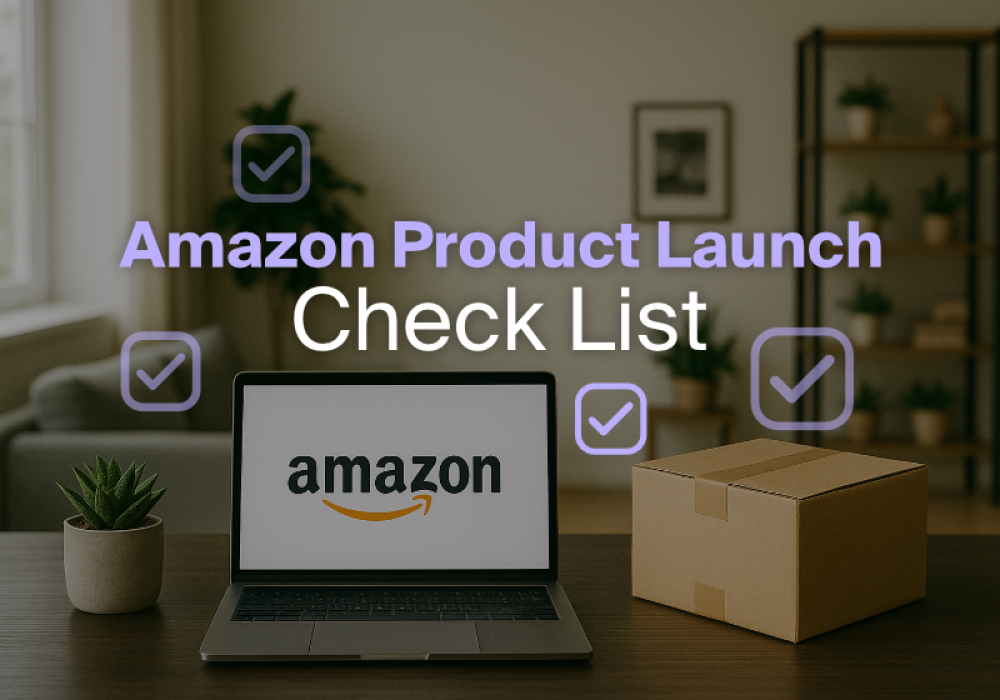Managing cash flow is crucial for Amazon sellers aiming for sustainability and growth. However, many sellers encounter delays in accessing their funds due to Amazon’s Delivery Date-Based Reserve Policy, commonly known as the DD+7 policy.
This article explains what this policy entails, why it’s applied, and how it impacts sellers, along with strategies to help mitigate its effects.
What is the Delivery Date-Based Reserve Policy?
Amazon's Delivery Date-Based Reserve Policy places sales proceeds on hold to ensure funds are available for potential returns, claims, or chargebacks. Here’s how it works:
- Funds from each sale are held in reserve for seven days after delivery confirmation by the carrier.
- After the 7-day period, funds are moved to the seller’s available balance.
- Funds are disbursed on the next scheduled settlement date, which may delay access to earnings.
Why Does Amazon Use This Policy?
This policy helps Amazon manage risk by ensuring funds are available to address any post-sale issues, such as:
- Customer returns
- Chargebacks or claims
- Other complications in the fulfillment process
The reserve hold aligns with Amazon’s commitment to a customer-centric approach, where they prioritize the buyer's experience and protection.
Who is Affected by the DD+7 Policy?
Amazon applies the DD+7 policy to accounts created after June 30, 2016. Recently, Amazon has started applying this policy to older accounts as well. For long-standing sellers, this can be a significant adjustment if they were previously accustomed to faster fund disbursements.
Impact of the DD+7 Policy on Cash Flow
The DD+7 policy’s primary impact is on cash flow, which can affect various aspects of a seller’s operations:
- Inventory Replenishment: Delayed funds can make it challenging to restock products, potentially leading to stockouts.
- Supplier Payments: Sellers with tight payment schedules may struggle without prompt disbursements.
- Operational Expenses: Key business expenses, such as advertising and shipping costs, may be impacted, potentially affecting business performance.
Differences Among Seller Accounts
Interestingly, some sellers notice that similar businesses are not affected by the DD+7 policy. This discrepancy may be due to differences in account registration dates or the gradual application of the policy to older accounts. Recently transitioned sellers may feel the impact more acutely, especially if they previously enjoyed quicker access to their funds.
Strategies to Mitigate the Impact of the DD+7 Policy
While Amazon generally doesn’t offer exceptions to the DD+7 policy, sellers can take steps to manage the impact on their cash flow:
- Adjust Financial Planning: Consider adjusting your financial planning and cash flow projections to account for the delayed disbursements. Establishing a buffer fund can help cover essential expenses.
- Increase Inventory Lead Times: To prevent stockouts, plan for longer inventory lead times, especially if you use Fulfillment by Amazon (FBA).
- Negotiate Payment Terms with Suppliers: Some suppliers may be open to adjusting payment schedules if they understand the impact of the DD+7 policy on your business.
- Optimize Listings and Pricing: Improving listing quality, conversion rates, and pricing strategies can boost sales volume, potentially offsetting the impact of delayed fund access.
- Contact Amazon Support: Sellers facing significant cash flow issues can reach out to Amazon’s support team to discuss the DD+7 policy’s impact on their account. While exceptions are rare, Amazon has provided an email address for sellers to request a review or possible extension of this policy: eu-uk-reserve-policy-extension@amazon.co.uk.
Overview
For Amazon sellers, understanding the DD+7 Delivery Date-Based Reserve Policy and its implications is essential for effective cash flow management. While this policy supports Amazon’s marketplace integrity, it can challenge sellers accustomed to faster fund disbursement.
By adjusting financial strategies, optimizing operations, and planning ahead, sellers can better navigate the impact of the DD+7 policy on cash flow. As Amazon continues to apply this policy across all sellers, proactive planning becomes key to sustaining a profitable business on the platform.
Looking to take your Amazon business to the next level?
Discover how Amzigo's advanced features, like our Automated Review Centre, Product Analysis, and Inventory Management, can transform your selling experience. Check out our features and try it for free!



